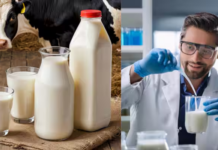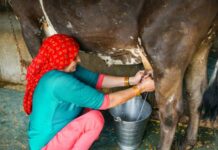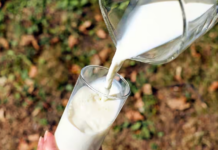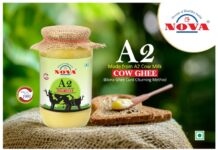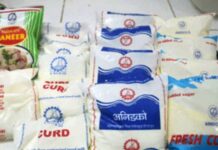New Delhi, June 13, 2017: Media reports poured in this week about a new study from researchers at the University of Toronto touting the benefits of cow milk—and the potential harms of non-cow milk, such as soy, rice, and almond milk.
Based on diet surveys and physical measurements of 5,034 children aged two to six, researchers found that that the 643 kids who drank cow milk alternatives tended to be shorter than their cow milk-drinking counterparts. The study even went so far as to suggest a dose-dependent response: the more non-cow milk, the shorter the child. Every daily cup of non-cow milk linked to a 0.4 cm drop in height, the researchers reported in The American Journal of Clinical Nutrition. At age 3, kids who drank three cups of non-cow milk a day were 1.5 cm shorter than those who drank 3 cups of cow milk per day.
The study has several weaknesses. Most notably, it doesn’t account for the children’s overall diet or the height of both parents. (Height is determined not just by nutrition, but environmental factors and genetics.) It’s also simply a correlative study, not able to determine causation even in the best of cases. Further, even if there is a link between various milks and height, the significance is questionable. The study makes no claim that such slight differences in stature at a young age have any bearings on current or future health or adult height. None of the kids were malnourished or suffering from stunted growth.
But perhaps most concerning detail are the study’s ties to the dairy industry, which the lead researcher was less than forthcoming about in an interview with Ars.
The lead author, pediatrician Jonathon Maguire, noted to Ars that the study was not funded by the dairy industry—it was funded by the Canadian Institutes of Health Research and the St. Michael’s Hospital Foundation. But past studies he has coauthored have been industry-backed. And several of those studies, like this one, were rather favorable to the dairy industry. For instance, a 2014 study he co-authored concluded that milk alternatives could lead to reduced vitamin D in kids and that drinking full fat milk could promote a healthy weight.
Though kids do need fat, protein, and vitamin D—all components of milk—those nutrients are not exclusive to milk. Many other foods contain them, including green vegetables, nuts, beans, and fortified foods—including fortified milk alternatives, such as soy milk. Cow milk is not an essential food. Many children, particularly those who are lactose intolerant, can get all the nutrients they need from a diet without cow milk.
Yet, when Ars asked Maguire if a child’s nutritional needs could be met regardless of how much non-cow milk was added or how much cow milk was removed, he oddly responded: “I don’t actually know the answer to that question. And I don’ t think—we don’t have enough data to answer that.”
When Ars asked about his past ties with the dairy industry, he was not truthful. In regards to funding, he stated that he only had a small grant “about $10,000 from the dairy farmers about ten years ago—and that’s it.” However, some rather light Internet digging found that this was not true. In 2011, he and colleagues were awarded a three-year, $90,000 grant from the Dairy Farmers of Canada. A study he co-authored in 2015 that included the same cohort of children that were involved in the new study, listed the Dairy Farmers of Ontario as funders. Another study he co-authored in 2016 listed the Dairy Farmers of Canada as funders. In a public presentation, one of his graduate students clearly listed both industry groups among lab funders.
When asked about this funding, Maguire backtracked his statement on the earlier grant funding, but he reiterated that the current study was not funded by the dairy industry.
Ars also asked Maguire about his affiliation with the industry and whether he was on any advisory committees. He replied simply that he wasn’t but failed to note that he was a member of Dairy Farmers of Canada Expert Scientific Advisory Committee as recently as 2016. On follow-up, Maguire simply stated that he was no longer a member.
Though the ties to industry and the study limitations are of concern, Maguire did offer this helpful tip: when making nutrition decisions, make sure to read the fine print on food labels. The same can be said of nutrition research.
Arstechnica.com



